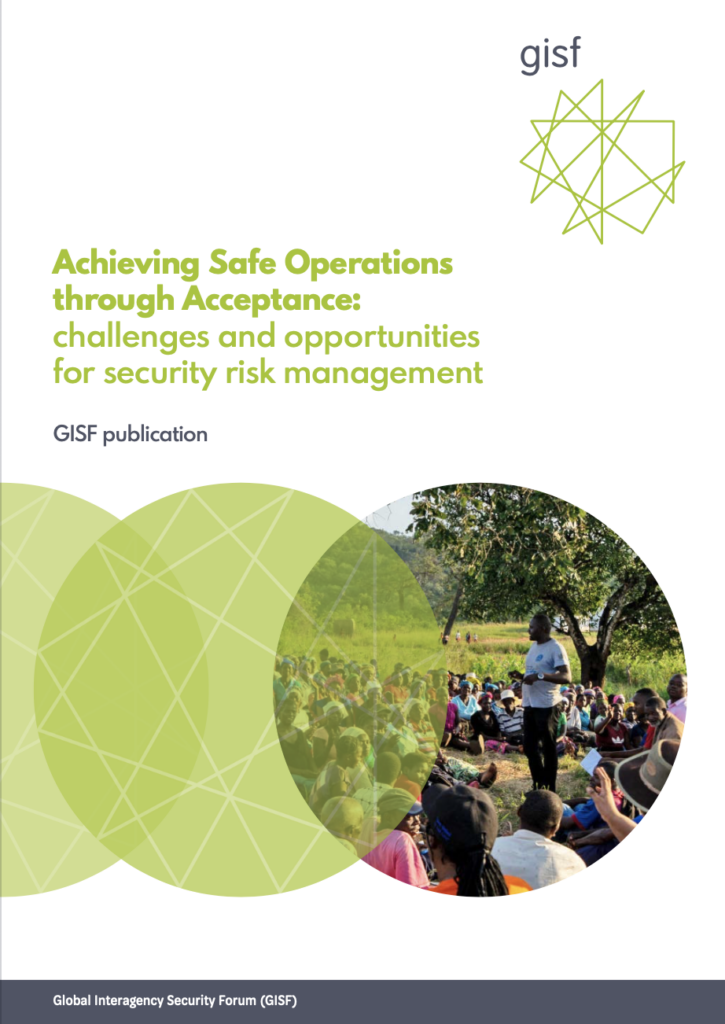
Acceptance is one of the three pillars of humanitarian organisations’ security risk management (SRM) strategies to ensure both access to populations affected by conflict and disaster and the safety of their staff and programmes.
However, the current context raises questions about degrees and practices of acceptance: are humanitarian organisations less accepted today, and have they always been more tolerated than accepted? Is it wishful thinking to seek acceptance in highly insecure contexts and from groups who are radically opposed to humanitarian principles? When, if ever, should acceptance be abandoned as an SRM approach? Moreover, many questions remain about the practicalities of implementing acceptance. What systems, organisational cultures and internal functioning enable organisations to implement successful acceptance strategies? Are humanitarian organisations changing the way they measure and approach acceptance considering the current challenges, and if so, to what end?
When starting this publication, GISF had three goals:
- To further demystify the practices and policies of acceptance as an SRM strategy. This means having a clearer understanding of how different organisations ‘do’ acceptance in practice.
- To explore current challenges related to acceptance in the aid sector and analyse how changes in the aid environment or aid organisations affect this acceptance.
- To spark debates and raise awareness about the relevance of acceptance for security risk management and programming. Developing and implementing effective acceptance strategies requires collaboration across humanitarian organisations, which GISF and this publication seeks to support this dialogue.
The articles that comprise this publication present diverging, and in some cases contradictory, viewpoints. Depending on their specific experiences, the article authors provide different interpretations of why acceptance sometimes fails and recommendations and strategies for addressing current challenges. They represent a diversity of perspectives and, we hope, help to facilitate dialogue on these important issues and implicitly acknowledge that there is neither a single way to view nor to ‘do’ acceptance.
- Acceptance under Stress: old recipes for new problems by Pascal Daudin
- Four Dilemmas of Acceptance: insights from the field of humanitarian negotiation by Rob Grace and Alain Lempereur
- Counter-Terrorism Legislation: a limiting factor in the gaining and implementing of acceptance by Lena Schellhammer
- Measuring and Improving Acceptance: Action Contre La Faim’s experience and perspectives by Regis Billaudel
- Promoting a Blended Risk Management Approach: the place of programming and diversity within a security risk management strategy by Chris Williams, Penelope Kinch and Lyndall Herman
- Debunkerising Acceptance: a view from the ICRC by Fiona Terry, Jean-Phillipe Kiehl, Robert Whelan and Tamás Szenderák
- Choice Architecture and Organisational SRM Buy-in by Araba Cole and Panagiotis Olympiou
- Intercultural Communication: a foundation to acceptance by Eric Jean and Christine Persaud
- Private Security Contracting and Acceptance: a dangerous match? by Juliette Jourde
- Digital Risk: how new technologies impact acceptance and raise new challenges for NGOs by Ziad Al Achkar
Feedback
“This week I took time to read all 10 articles on acceptance and SRM. Very worthwhile material. Thanks for sharing. Nice and to the point and with good diversity on different technical angles. I have sent the list to my entire team and have recommended them to read it whereby I highlighted 4 articles I liked particularly.”
– Tom Van Herwijnen (Christian Blind Mission)
